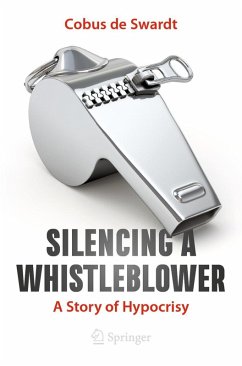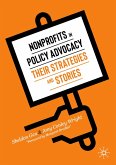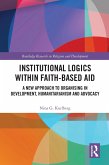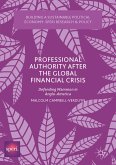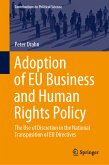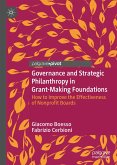This book examines how insufficient policies can lead to the alleged abuse of power in organisations. When independent ethical structures and processes are missing or weak, practices of abuse, misconduct and cover-ups can easily arise at the leadership level. Even organisations that specialise in good governance are no exception, as illustrated by this case study on arguably the world's most influential anti-corruption NGO, Transparency International (TI).
Written by the former Managing Director of Transparency International, this book chronicles its ethical breakdown over a 5-year period starting in 2015. By comparing TI's whistleblower policies with its internal whistleblower practices, it demonstrates how the organisation gradually became trapped in a vicious cycle of secrecy, corruption and lies.
The author chronologically tracks TI's practices, drawing on 12 whistleblower complaints filed with TI since 2017, as well as communications with TI, international donor agencies, and other international civil society organisations from 2015 to 2020 to do so. The chronological format aptly reveals the snowball effect that ethical weaknesses can create over time, as well as the emotional warfare that whistleblowers are typically subjected to. The unfolding chronology also shows what it means to be a whistleblower for an organisation that avoids public transparency, reporting on and scrutiny of its own practices.
Written by the former Managing Director of Transparency International, this book chronicles its ethical breakdown over a 5-year period starting in 2015. By comparing TI's whistleblower policies with its internal whistleblower practices, it demonstrates how the organisation gradually became trapped in a vicious cycle of secrecy, corruption and lies.
The author chronologically tracks TI's practices, drawing on 12 whistleblower complaints filed with TI since 2017, as well as communications with TI, international donor agencies, and other international civil society organisations from 2015 to 2020 to do so. The chronological format aptly reveals the snowball effect that ethical weaknesses can create over time, as well as the emotional warfare that whistleblowers are typically subjected to. The unfolding chronology also shows what it means to be a whistleblower for an organisation that avoids public transparency, reporting on and scrutiny of its own practices.
"Former Managing Director Cobus de Swardt has written a compelling story of abuse of authority and unethical conduct at the apex of the very organization expected to safeguard accountability in governments and corporations around the world. As Silencing a Whistleblower reveals, Cobus de Swardt's disclosures were and are a milestone in the accountability world because of the institutional hypocrisy he exposed."
Beatrice Edwards, former Executive Director of the GovernmentAccountability Project (GAP)
"Cobus de Swardt's must-read account of his travails in Transparency International (TI) as he tried tirelessly to blow the whistle on leadership abuses is a tragic, yet vitally important warning. Even those organizations avowedly dedicated to openness, accountability and integrity, must be constantly vigilant to ensure that they do not fail their most able and dedicated employees."
Frank Vogl, Co-Founder and former Vice Chair, Transparency International.
Dieser Download kann aus rechtlichen Gründen nur mit Rechnungsadresse in A, B, BG, CY, CZ, D, DK, EW, E, FIN, F, GR, HR, H, IRL, I, LT, L, LR, M, NL, PL, P, R, S, SLO, SK ausgeliefert werden.
Es gelten unsere Allgemeinen Geschäftsbedingungen: www.buecher.de/agb
Impressum
www.buecher.de ist ein Internetauftritt der buecher.de internetstores GmbH
Geschäftsführung: Monica Sawhney | Roland Kölbl | Günter Hilger
Sitz der Gesellschaft: Batheyer Straße 115 - 117, 58099 Hagen
Postanschrift: Bürgermeister-Wegele-Str. 12, 86167 Augsburg
Amtsgericht Hagen HRB 13257
Steuernummer: 321/5800/1497
USt-IdNr: DE450055826
Bitte wählen Sie Ihr Anliegen aus.
Rechnungen
Retourenschein anfordern
Bestellstatus
Storno

